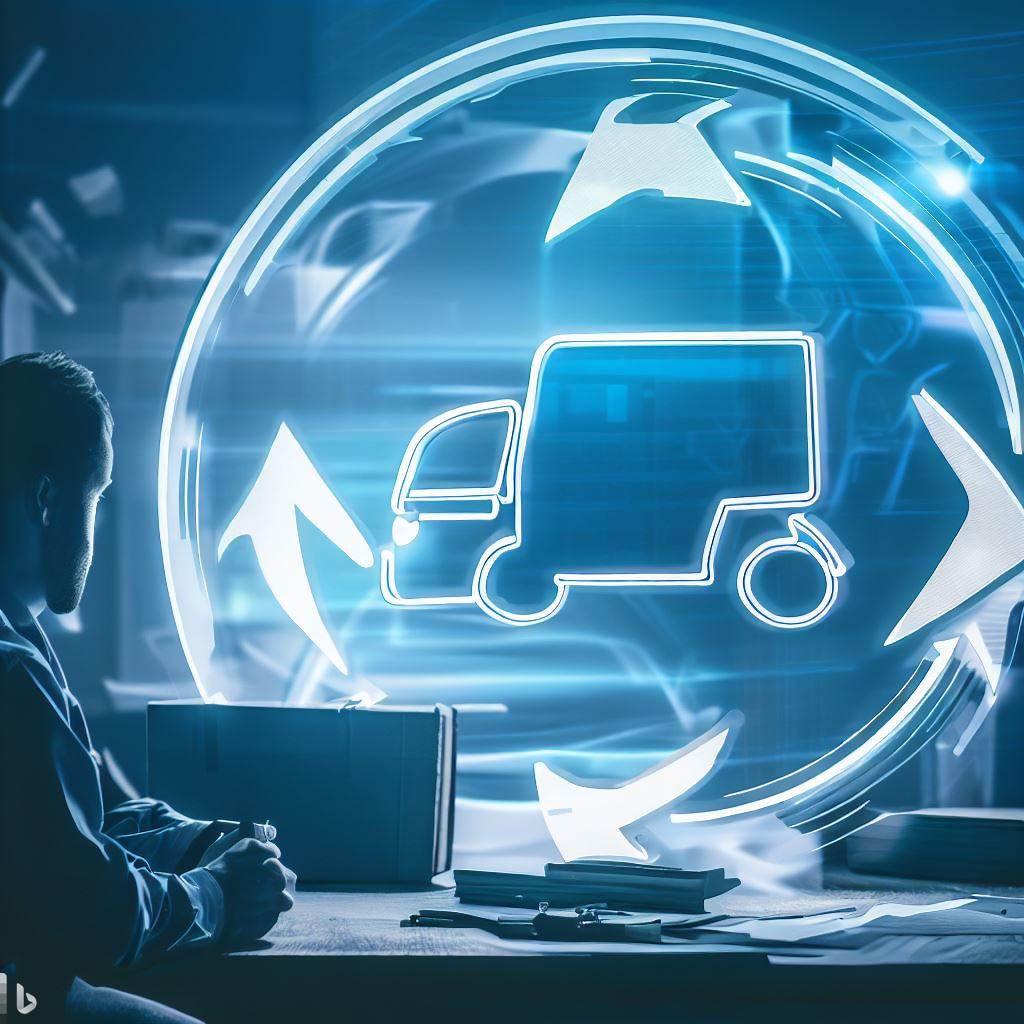ERP for Reverse Logistics Providers: Elevate Product Returns Management
Streamlining Reverse Logistics with ERP Solutions. Explore how Enterprise Resource Planning (ERP) addresses challenges faced by reverse logistics providers, optimizing returns management, supply chain visibility, and customer service. Elevate your business with ERP integration.
The reverse logistics providers business faces various pain points and bottlenecks due to the complexities of managing product returns, refurbishment, and disposal. However, implementing an Enterprise Resource Planning (ERP) system can offer effective solutions to address many of these challenges.
Benefits of ERP Implementation for Reverse Logistics Providers
Product Returns Management:
ERP’s returns management module streamlines the logistics and processing of returned products.
Customer Service:
ERP’s customer relationship management (CRM) features handle customer inquiries and complaints related to returns.
Product Inspection and Testing:
ERP’s quality management system facilitates efficient assessment of returned products.
Reverse Supply Chain Visibility:
ERP’s supply chain monitoring provides real-time tracking of returned products.
Refurbishment and Repair:
ERP’s refurbishment planning optimizes the refurbishment or repair process.
Product Recalls:
ERP’s recall management module coordinates product recalls and returns.
Disposition Decision:
ERP’s analytics aid in deciding the best disposition method for returned products.
Transportation Costs:
ERP’s logistics optimization minimizes transportation expenses for reverse logistics.
Warranty Validation:
ERP’s warranty tracking verifies warranty status and processes claims.
Inventory Management:
ERP’s inventory control system organizes the inventory of returned products.
Obsolete Inventory:
ERP’s inventory tracking manages obsolete or end-of-life products.
Seasonal Return Fluctuations:
ERP’s demand forecasting anticipates spikes in returns during peak seasons.
Product Tracking and Tracing:
ERP’s traceability features ensure end-to-end tracking throughout the reverse logistics process.
Product Depreciation:
ERP’s asset management tracks product depreciation during the return process.
Logistics Network Optimization:
ERP’s route planning optimizes routes and transportation methods for returned products.
Recycling and Disposal Regulations:
ERP’s compliance tracking ensures adherence to environmental regulations.
See How My Company Can Massively Automate Your Company Departments
Custom CRM Development – For Organizations to manage its Customer Interactions in addition to Sales, Marketing, Billing, Products, Services, Contacts, Customer Support, among other things.
Custom ERP Development – For Manufacturers to handle BOM, Quotation, Order, RFQ, PO, SOA, Manufacturing, Trading, Inventory, Quality Control, Logistics, Shipments, and so on.

Reverse Logistics Costs:
ERP’s cost analysis module calculates reverse logistics expenses.
Packaging and Labeling:
ERP’s configurable options manage appropriate packaging and labeling for returns.
Reverse Logistics Partnerships:
ERP’s vendor management module establishes partnerships with recycling or refurbishment facilities.
Data Management:
ERP’s data analytics handles and analyzes large volumes of reverse logistics data.
Reverse Logistics Technology:
ERP’s integrated software streamlines reverse logistics operations.
Recovery and Resale Value:
ERP’s pricing strategies maximize recovery value for reselling returned items.
Labor Costs:
ERP’s workforce management module optimizes labor expenses for handling returns.
Legal and Regulatory Compliance:
ERP’s compliance module ensures adherence to legal requirements.
Return Authorization Process:
ERP’s workflow automation streamlines the process for authorizing product returns.
Reverse Logistics Reverse Supply Chain:
ERP’s integrated modules bridge reverse logistics with the forward supply chain.
Quality Control:
ERP’s quality management system ensures refurbished products meet quality standards.
Reverse Logistics Reverse Flow Planning:
ERP’s real-time data aids in optimizing reverse flow planning for efficiency.
Customer Returns Experience:
ERP’s CRM features enhance the returns experience to retain customer loyalty.
Visibility of Return Reasons:
ERP’s analytics provides insights into reasons for product returns to improve products and services.
Implementing an ERP system tailored to reverse logistics providers streamlines operations, enhances compliance, and optimizes reverse logistics processes, ensuring efficient handling of returned products and customer satisfaction.
